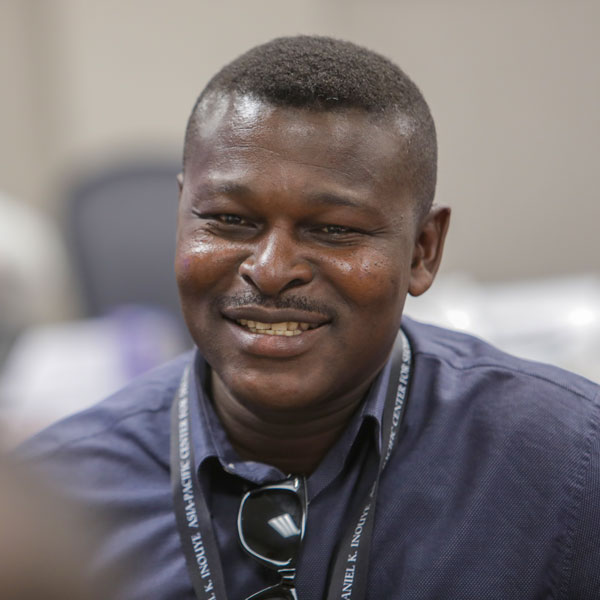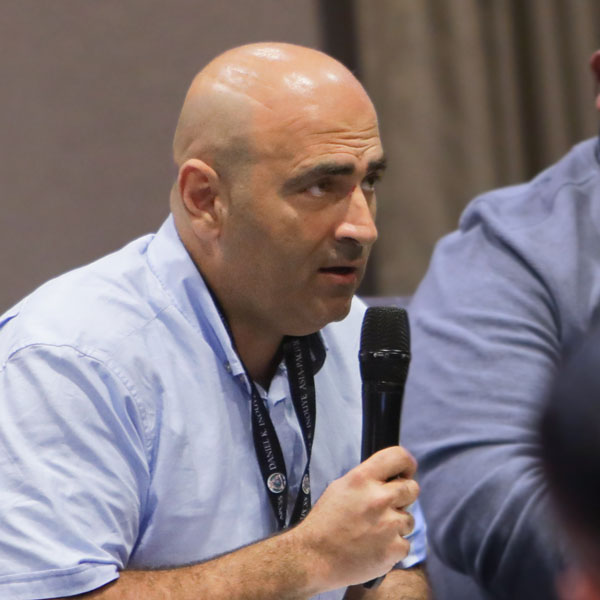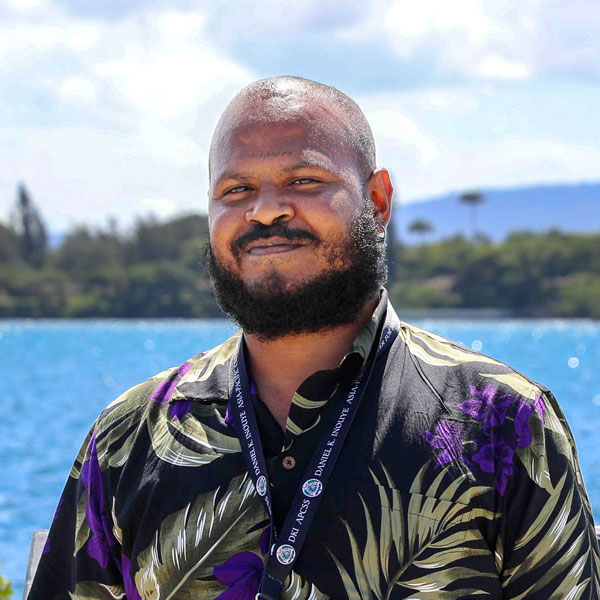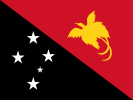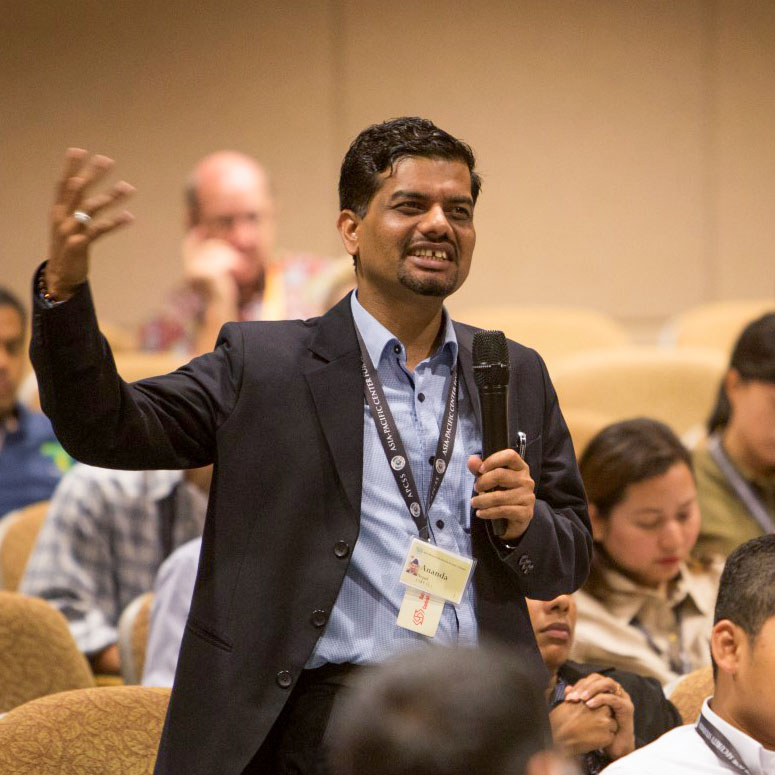Ensuring the Increase of Women Participation in Peace and Security Operations in Ghana’s Army by 2019
Project timeline: 7/3/2019 – 12/1/2019
Colonel Rafat Awudu’s project focused on the predominantly male demographic in Ghana’s Army and the accompanying security operations. He encouraged female participation by challenging the societal perception of female personnel and demonstrating a comprehensive gender-based military architecture. By 2019, this project’s efforts resulted in 75 additional recruits in comparison to previous years.
Military in Law Enforcement – Capacity Building
Project timeline: 10/26/2022 – 4/28/2023
Ms. Verena Neundter observed a necessity to remind military personnel about their responsibilities and limitations when deployed to exercise police powers in support of local law enforcement agencies. As she was based during this period in Sri Lanka, Ms. Neundter conducted a workshop in two different regions for a total of 90 commanders of the Sri Lankan army. She designed a curriculum emphasizing procedures about the use of force and firearms and the management of crowds. Working groups were formed to discuss case studies and share the appropriate responses to such scenarios to create an interactive atmosphere.
Developing a Handbook on Cultural Heritage Protection During Armed Conflicts in Lebanon for the Lebanese Armed Forces
Project timeline: 2/26/2020 - 10/20/2022
Utilizing his doctoral degree in archeology and long-time background with the military, Lt. Col. Ziad Jalbout proposed a project to raise awareness of protecting cultural heritage within the Lebanese Armed Forces. He wrote a handbook about the responsibility to protect cultural heritage and appropriate procedures for doing so. In partnership with UNESCO, the Lebanese Army’s Directorate of International Humanitarian Law and Human Rights later published this handbook for use in training on cultural properties.
PNG – US Defense Cooperation Agreement
Project timeline: 5/25/2022 – 2/28/2023
Mr. Charlie Siniu was part of the negotiating team that established the Papua New Guinea—United States Defense Cooperation Agreement in 2023. He participated in consultations with the Washington team to identify shared areas of interest and points of contention. The agreement provided a foundational framework to enhance security cooperation and bilateral relations between the United States and Papua New Guinea.
Optimize the Coordination within the Indonesian Inter-Institutional “Synergy Program for Counterterrorism”
Project timeline: 6/30/2022 – 1/5/2023
Ms. Atika Rachma addressed the coordination gap in a national counterterrorism program by synchronizing national objectives with the local government’s available resources. Arranging meetings between relevant stakeholders, her efforts culminated in the formation of an initiative focusing on the social integration of former convicted terrorists. Ms. Rachma ultimately demonstrated the possibility of multi-actor collaboration under this national counterterrorism program. The Indonesian Counter Terrorism Agency has plans to implement this initiative in several provinces.
Developing a National Cyber Security Policy for Nepal
Project timeline: 3/13/2015 – 8/7/2023
Over the course of eight years, Mr. Ananda Raj Khanal took the initiative to develop and implement Nepal’s first National Cyber Security Policy. He coordinated with international and national stakeholders, like the International Telecommunication Union and Nepal’s Ministry of Communications and Information Technology, to create a comprehensive policy. The Cabinet approved this document in August 2023, and Mr. Khanal is pursuing several initiatives to fully implement the policy and raise cyber awareness across government, academia, and the general population.
Building Cyber Resilience Among Middle-Grade Officers in Sri Lanka Air Force
Project timeline: 6/29/2023 – 12/4/2023
As the Sri Lanka Air Force (SLAF) continues to adapt to evolving threats in cybersecurity, Squadron Leader Shashika Sandaruwan Ekanayake identified network vulnerabilities that current and future officers must address. To best protect critical cyber infrastructures, he concentrated his efforts on revising the existing cybersecurity training module for junior and middle-grade SLAF officers. Sqn. Ldr. Ekanayake surveyed samples of students to identify weak areas of cyber awareness and successfully adjusted the curriculum accordingly.
Land Border Regiments Training School: Turning Challenges into Opportunities
Project timeline: 3/22/2023 – 9/15/2023
Brigadier General Mohamad El Affi proposed a multifaceted project that would fund Lebanon’s Land Border Regiments Training School (LBRTS). Losing 90% of its yearly budget, the LBRTS needed to secure funds in order to continue training the Lebanese Armed Forces on border control. As a solution, Brig. Gen. El Affi developed a Hostile Environment Awareness Training (HEAT) course to sell to national and international non-governmental organizations. With support from international partners, he organized two-week HEAT courses and plans to execute additional training in 2024.
Engaging All Nauru Emergency Response Agencies to Conduct Crisis Management Joint Exercises
Project timeline: 10/19/2015 - 12/22/2020
Mr. Gregor Garoa’s project synchronized emergency response agencies according to a recently formulated National Incident Response Plan. When the COVID-19 pandemic began, Mr. Garoa coordinated with various government departments to organize 11 emergency drill exercises in Nauru’s districts. This initiative produced an in-depth report with analysis highlighting areas of improvement for the Ministry of Health and Medical Services, Nauru Police Force, community command posts, and several other stakeholders.
Approval for the Acquisition of a Readily Deployable Survey Boat and Skiff:
Project timeline:10/26/2022 – 3/13/2023
Lieutenant Commander Analyn Antonio identified several opportunities to advance hydrographic capabilities within the Naval Meteorological and Oceanographic Center. She produced a position paper arguing for new equipment to understand the maritime environment better. Acquiring a survey boat and skiff, LCDR Antonio was responsible for this enhanced capability that assessed and prevented deployment dangers for Navy personnel.
Law Enforcement and Reducing Humanitarian Risks in the Early Stages of Detention
Project timeline: 2/2/2022 – 12/7/2022
Mr. Erich Meier, Jr., organized the 2nd Asia Pacific Police Colloquium with a central theme around law enforcement’s responsibilities during the early stages of detention. Hosted by the Philippines, this event gathered over 40 senior police officers across several countries in the Indo-Pacific. Mr. Meier developed a booklet in preparation for this event, covering previous iterations of the Regional Police Colloquium to be referenced for future activities. This event utilized a multidisciplinary exercise to discuss current practices for effective interviewing, information gathering, custodial facility management, and detention activities. Reflecting on his experience, Mr. Meier returned to DKI APCSS as a guest speaker for the CSC 23-1 cohort. Read more about this project here.


